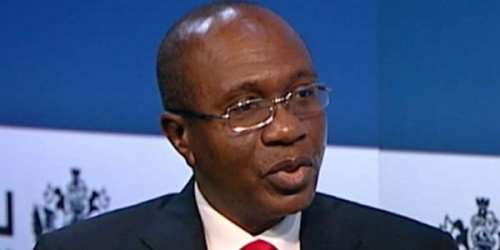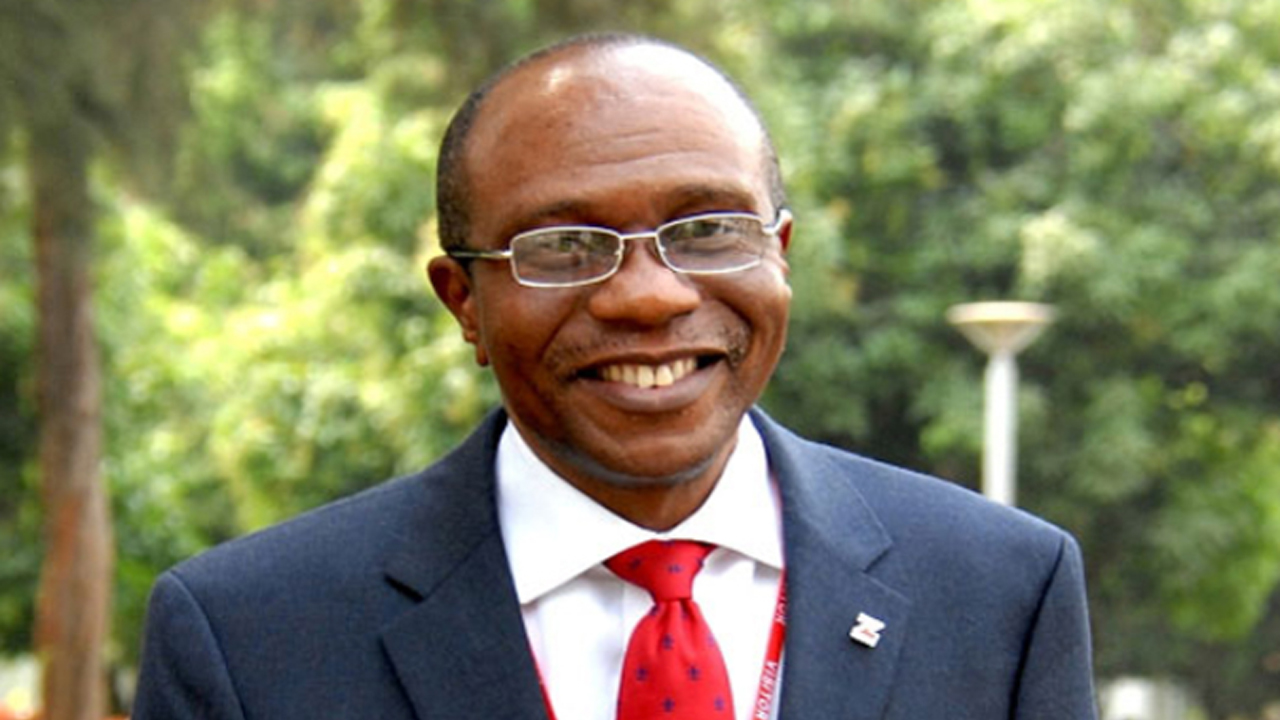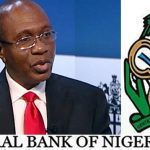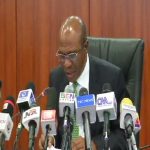 President Muhammadu Buhari has sent a letter to the senate, seeking approval for the renewal of the central bank governor’s tenure for another five years.
President Muhammadu Buhari has sent a letter to the senate, seeking approval for the renewal of the central bank governor’s tenure for another five years.
If approved, Mr Emefiele will be the first central bank governor in Nigeria since its return to democratic rule, to serve a second term.
Lara Afolayan reports that 57 year old Godwin Emefiele was appointed central bank governor by the Jonathan administration in 2014., and the Buhari administration retained him after it came into power a year later.
He was governor, when the country saw its worst recession in 29 years.
 As CBN governor, Mr Emefiele introduced various interventions to ensure that the naira was kept stable. He survived several calls for his removal particularly during the free fall of the naira against the green back to an all time high of five hundred and fifty naira
As CBN governor, Mr Emefiele introduced various interventions to ensure that the naira was kept stable. He survived several calls for his removal particularly during the free fall of the naira against the green back to an all time high of five hundred and fifty naira
Amid calls for the CBN to devalue and float the naira, the governor instead introduced capital control mechanisms to stem the naira’s fall.
An importers and exporters window was introduced to allow the naira’s pricing at a market rate, this was alongside directing banks to sell forex to customers over the counter for basic travel allowance , medical and education payments.
The bank also began cash injections into the foreign exchange market in defense of the naira. Over forty billion dollars cash injections had been made at the end of 2018.
This is believed to have helped in currency stability with the naira hovering at N360 at the parallel market while officially at N305 to the dollar
The consummation of the Bilateral Currency Swap Agreement with the People’s Bank of China last year saw the apex bank’s additional intervention in the foreign exchange market through sale of foreign exchange in the Chinese Yuan .
The Central bank’s intervention in agriculture through the anchor borrowers’ programme also helped improved the country’s rice production capacity.
Many believe Mr Emefiele’s stay in office has been soothing to the banking industry. They particularly commend the smooth takeover of the defunct skyebank by polaris bank without causing panic in the system.
His monetary policy stance has remained tight in the last four and a half years. A major highlight of that was the retention of the monetary policy rate at 14% for over two years. The rate was only eased slightly by fifty basis points at the monetary policy committee’s last meeting in March this year.
 Some economic watchers feel Mr Emefiele’s monetary policy stance as governor helped push down inflation. But some critics say his policy initiatives have not helped in economic growth.
Some economic watchers feel Mr Emefiele’s monetary policy stance as governor helped push down inflation. But some critics say his policy initiatives have not helped in economic growth.
The Central bank governor will be the first to get a renewal since the country’s return to democratic rule in 1999. His predecessors Joseph Sanusi, Chukwuma Soludo and Lamido Sanusi, were not so lucky.
Joseph Sanusi, who was a one time chief executive of first bank and was appointed by the Obasanjo administration, had high public expectations of being retained as governor after his initial five years but that was not to be.
Chukwuma Soludo, who was chief economic adviser before emerging central bank governor, will be remembered for his banking sector reforms, which saw bank’s capital bases moving from two billion to twenty five billion naira, a development that also reduced the number of the country’s banks from 89 to 25.
Dr Soludo’s plans to redenominate the naira is believed to have spoilt his chances for tenure renewal, by the Yar’adua administration.
The emergence of Lamido Sanusi following Soludo’s exit, began with a stress test in the banking sector, which saw the removal of nine bank chief executives.
Mr Sanusi’s suspension from office shortly before his tenure’s expiration is believed to have been triggered by his allegations of twenty billion dollars missing from the federation account following remittance failure by the Nigerian National Petroleum Corporation, NNPC.
.Mr Emefiele’s renewed tenure as central bank governor will expire in the year 2024 if approved by the senate.
Sent from Yahoo Mail on Android
Sent from Yahoo Mail on Android













